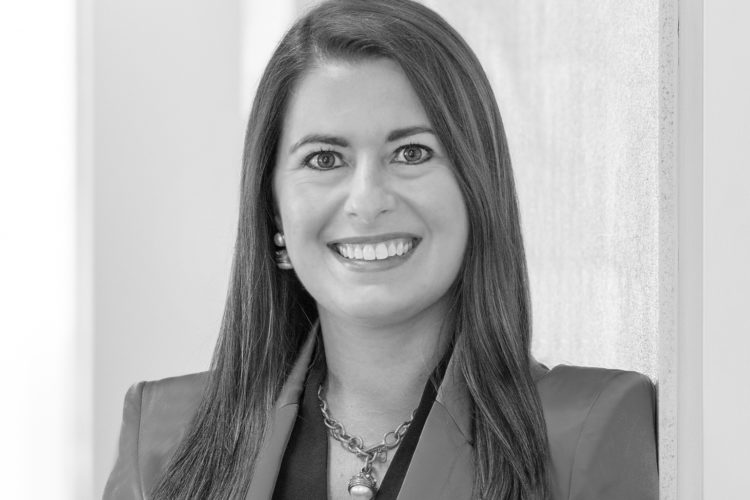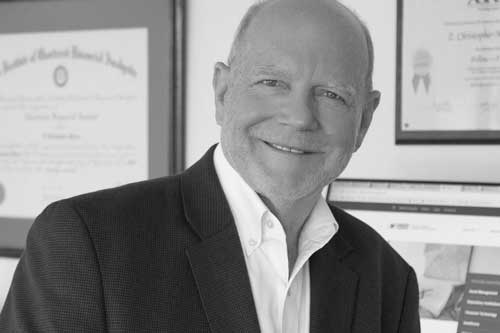Highlights from the 2024 AAML National Family Law Conference
Ingredients for an Expert
We were proud to sponsor and attend the AAML’s inaugural National Family Law Conference in Nashville, Tennessee on May 16-18, 2024. As usual, the sessions and attendees did not disappoint. The full program can be found here.
Our biggest takeaway was that successful cases include the right recipe: the right attorney and the right expert – essentially, the right team.
But how do you choose the right team? A former colleague taught me the “good, fast, cheap principle.” This is a useful tool to use when discussing fees whether you are the family law attorney talking with clients or the valuation and/or forensic expert talking with attorneys or other referral sources.
We all know this principle – if you want it good and fast, it won’t be cheap. If you want it cheap and fast, it won’t be good.
Let’s focus on three sessions of note with this principle in mind:
- The Art of Attraction: Drawing Clients, Referrals & Profits to Your Family Law Practice
- Christopher C. Melcher, Esq., Walzer Melcher & Yoda, LLP, Jim Mueller, Esq, Verner Brumley Mueller Parker, Darrin Sennott, Scorpion
- Business, Bucks & Breakups: Mastering Business Valuations & Leveraging Your BV Expert in Divorce
- Neil Beaton, CPA/ABV, CFA, ASA, Alvarez & Marsal, Scott M. Mann. Esq, Mann Tucker Muir Gordon, LLC, Z. Christopher Mercer, FASA, CFA, ABAR, Mercer Capital, Amanda S. Trigg, Esq., Cohn Lifland Pearlman Herrmann & Knopf
- Crypto, Cash and Concealment: Finding and Tracing Hidden Assets in Divorce
- Neil Beaton, CPA/ABV, CFA, ASA, Alvarez & Marsal, Alex Krasnomowitz, CPA, CVA, MBA, Smolin Lupin, Thomas J. Sasser, Esq., Sasser Cestero & Roy, P.A.
The Art of Attraction
While the focus of this presentation centered on drawing clients, referrals, and profits to the family law practice of attorneys, the key themes also apply to assembling the entire team for a family law engagement, including the selection of the expert(s). The session also provided marketing and business development takeaways for many client-interfacing professional industries. The presenters focused on the principle of “Know, Like, Trust.” The ideal expert will exist at the intersection of all three of these concepts. Let’s examine each of the three components from the angle of working with a financial expert.
Know
There’s truth in the saying “it’s all in who you know.” The concept of “Know” is two-pronged: relationships and awareness. Relationships are the living, breathing network of all service professionals. Nurturing involves making consistent and intentional efforts to maintain existing relationships, while also finding time to create and form new relationships. These activities can be challenging during periods of heavy case load work. But just like withholding water from a plant for a few months, letting these relationships lie dormant for months at a time may lead to their decline and worse, death. Focusing on primacy and recency can reinforce these referral relationships.
The second phase of the “know” concept is awareness. Just knowing people is only part of the equation and may limit opportunities to only those within your own network. Building awareness of you and the services you provide (as well as awareness of your firm and the services of the firm) expands your network and allows opportunities to grow exponentially. The visual image here is instead of fishing with one pole in the water, by focusing on awareness, you are fishing with hundreds of poles in the water. You can imagine the difference in results in those two scenarios. The presenters offered the tip to make a goal to connect with one new person a week, this can lead to over 50 new connections in one year.
Like
Divorce cases can be high stress with uncomfortable conversations at times and are not for the faint of heart. Just as the likeability of our co-workers is a major influence on our satisfaction at work, the team for a family law engagement should consider the likeability factor. These engagements require the individuals to spend considerable time together so when faced with a choice of two equally qualified experts, why not choose the one that you actually enjoy working with?
Trust
Finally, attorneys hire experts whose professional reputation, judgement, work product, character, and abilities in depositions, mediations, and/or court they can trust. Building a professional reputation involves credibility, competency, exercising professional judgement, holding the proper credentials, and having deep experience. Many attorneys develop a personal relationship with an expert from working together on different cases and, thereby, know and trust the capabilities and character of the expert. That personal relationship can be an important deciding factor in choosing the expert.
The ability of the expert to communicate effectively is also important. Litigation can involve high-stress work with complex concepts under tremendous pressure and compressed timelines. While an expert’s work product is fact-based, effective experts take those facts and craft them into an understandable story for the mediator or judge. Think of it as the ability to summarize complex topics into smaller digestible spoonfuls of information. You can have the smartest expert with the most thorough analysis and complex conclusions, but if he/she can’t communicate it at a layperson’s level, all of that hard work risks getting lost in the mix.
Effective experts are also diligent, both in communication and in the work. Follow-through is important as well. Imagine the height of a case as a crisis, attorneys want experts that will be in the proverbial ditch with them, following through and doing what they say they will do when they say they will do it.
Pulling It Together
Unlike the “good, fast, cheap principle,” attorneys aren’t satisfied with the notion of picking two and not having all three. Let’s analyze. If you know someone and you trust them, but don’t like them, how does that play out? The hired gun in a particular market comes to mind here. He/she might be a veteran expert that everyone knows with a lengthy testimony experience during their career, but the like factor is missing. Would you enjoy working with this type of expert? What about an expert that you know and like, but don’t trust? He/she might be a pleasant person you enjoy interacting with in social circles, but is the trust factor there? Would you want an expert that you generally like but one that won’t work hard and doesn’t follow through and do the things they say they are going to do when they say they will do them?
Business, Bucks, and Breakups
There’s more to a business valuation than simply hiring and outsourcing to the valuation expert. Attorneys and appraisers ought to communicate during the planning phase for scope and ironing out critical details such as valuation date, standard and premise of value, subject interest, and more.
Valuation date may seem like a simple detail, but jurisdictions can vary on guidance and/or requirements – so then is it the date of separation, current date, a post-trial date, or some other mutually-determined date? What if multiple valuation dates need to be analyzed and considered? We wrote on this very topic in Family Lawyer Magazine, linked here.
Next, do you need a consulting expert, a valuation expert, or perhaps both? This may vary and depend on the matter, and the Federal Rules of Evidence – 702 should be used as guidance. Furthermore, who exactly should be your expert? Things to consider include subject matter expertise, general demeanor, credentials, experience, and possibly location if that is deemed important in the virtual world of today.
Lastly, experts want attorneys to prepare with them for testimony – whether deposition and/or trial, and they also want to help attorneys prepare for another expert’s deposition and/or trial.
Crypto, Cash, and Concealment
Attorneys face all types of unusual assets and businesses in their family law cases. Some cases involve businesses that need to be valued. Some businesses are more unusual than others, some might be emerging industries like artificial intelligence, some may be early-stage companies that depend on the ability to execute strategies and achieve forecasted results, and some involve unique industries like auto dealerships, bank/financial institutions or registered investment advisors (RIAs).
Some cases also involve eccentric and valuable assets outside of the normal run of the mill furniture, vehicles, etc. Cases may involve fine art, luxury or collector automobiles, cryptocurrency, high-end rare sneaker collections, or rare coins/jewelry just to name a few.
Be cautious of any expert who claims to have the ability to value all of these assets. The key is maintaining some specialties, but also maintaining a network of other respected professionals around the country.
Just as it is important for experts to maintain and develop their referral relationships, it is equally important to develop and interact with specialty professionals around the country. Think of it like this: would you rather have an expert that is entering a battle by himself/herself, or one that is equipped with an army of supporting experts and resources?
Conclusion
Family law cases have similar ingredients – high stress, deadlines, complex assets, and financial concepts. In selecting an expert and the entire team for a family law engagement, following the right recipe is key. Keep in mind the “good, fast, cheap principle” and the “know, like, trust principle” that we have highlighted in this article.




